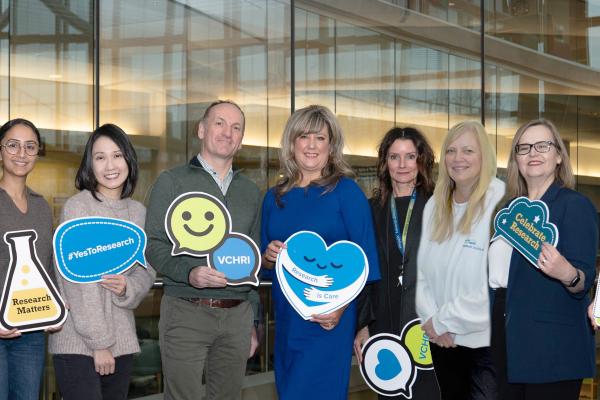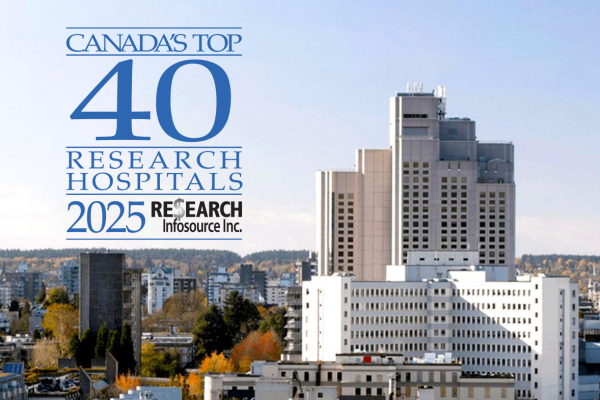
VCHRI researchers explain why health care depends on research participants.
They benefit us, but we often don’t understand them very well. VCHRI experts explain what we should know about clinical trials.
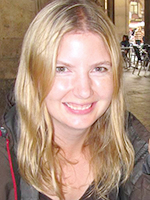
Q: How do clinical trials benefit participants and members of the public?
Kolind: Clinical trials are so important—they allow us to test whether new treatments are safe and whether they are effective. Trials also allow participants to access to treatments earlier than would otherwise be possible. Without clinical trials, it would be very difficult to know what treatments might benefit a particular individual. Often, clinical trials include extra imaging or other assessments about an individual’s health that participants may find helpful or interesting.
Q: Why are clinical trials so important in finding treatments?
Kolind: Without clinical trials, we could not properly understand the effect of a treatment on the specific problem. It’s important to rule out other things that might cause an improvement in symptoms, and to assess any safety issues or problems with interactions with other medications, conditions, food, supplements and lifestyle changes.
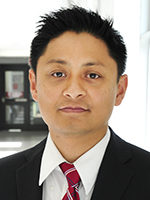
Q: What are some common misperceptions about clinical trials?
Yong: People may think clinical trials focus only on drug testing. In fact, clinical trials can involve a variety of treatments ranging from exercise to peer-based support groups to drug therapies. Sometimes, people think that taking part in a trial will be too much of a time constraint or too stressful. But in our experience, we find patients are very satisfied with their experience. There are different commitments for different trials— some trials require very little time, while some are more intensive. But we are always very clear at the outset in describing what will be involved. When someone decides to take part, they are making an informed decision.
We’ve made a lot of progress in streamlining participation to be more efficient for patients. For example, technology is allowing us to cut down on trips to the clinic during the trial. People are able to input information online so we can quickly and easily track symptoms.
Another misperception is that we always need people with a health condition. Often trials depend on control groups—people with no health issues who can help us compare results.
Reading the stories of previous research participants is a great way to see the different types of experiences involved.
Q: What would you like people to know about clinical trials?
Yong: I’d like patients to know how much they are valued. They are in a partnership with researchers. There is a huge trend today towards greater input and feedback from our patients.
Patients help us generate questions for trials and they help us with interpretations and applications of results. We are a team.
I’d also like people to know that researchers have a strong desire to give back to the public. We are working hard to do a better job of knowledge translation—sharing the things we learn with patients and the general public. In my case, I am working with a qualitative researcher to create an online education tool for endometriosis.
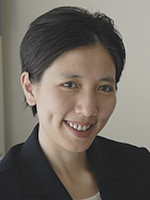
Q: What are the biggest challenges you face as a clinical researcher?
Li: Recruitment is the main challenge. We have to work hard to reach people and inform them about participation opportunities, especially for those who may be harder to reach – for example, rural and remote communities, and newcomers to the country. It’s not enough to just put posters up. Sometimes people question the legitimacy of a trial they see on a poster so we have to build partnerships in clinics and with patient/consumer groups, to help present our information. This way, the information is offered from a trusted place. We spend a lot of time building those partnerships.
There are many layers of preparation to get the word out to the public, and there are ways we tailor our approach. Some partners, such as patient groups, want to have the recruitment information online for their members, some prefer sign-up sheets and others use information cards. These are all small steps but they have to be done right.
Q: Have you ever had to abandon a research project or scale it down due to lack of participation?
Li: We had one experience that we had to scale down the recruitment and it was not an easy decision! If you don’t have enough participants for your research study, the results may not be useful and meaningful. Building good relationships with providers in the clinical community and with patient/consumer groups is key to making sure we meet recruitment targets.
We have to be accountable to our funders whether it’s from public funding organizations or private donors. Well-organized peer-review processes provide safeguards to make sure the recruitment process and trial targets are realistic. With the use of social media and more communications efforts showcasing our research, we now have more channels for people to become aware of research participation opportunities.
When we ask our participants why they take part, the answer is typically because they want to help others. Many people really want to help further health and treatment knowledge.
Our job is to foster that altruism and back it up with credible research opportunities. It’s a win-win for everyone.
To learn more about what it’s like to participate in research, sign up to our In It Together newsletter to read real participant’s stories.
